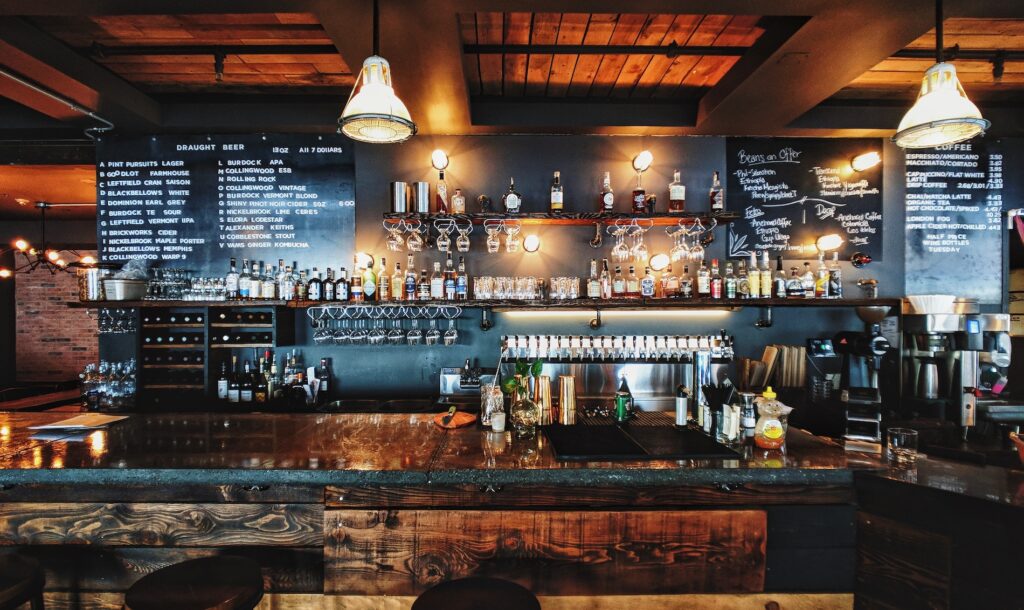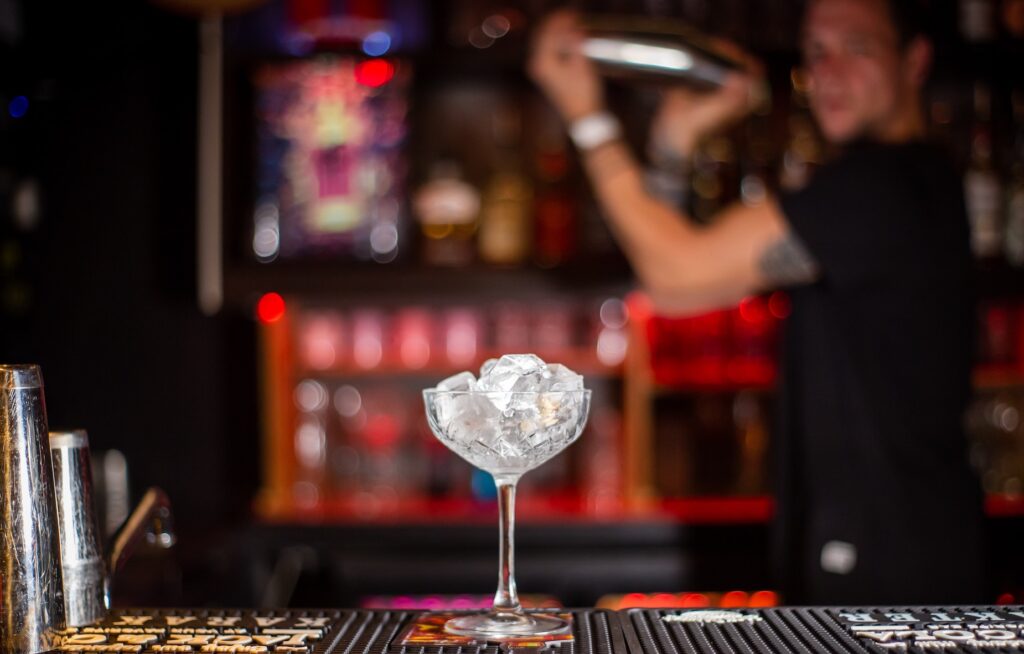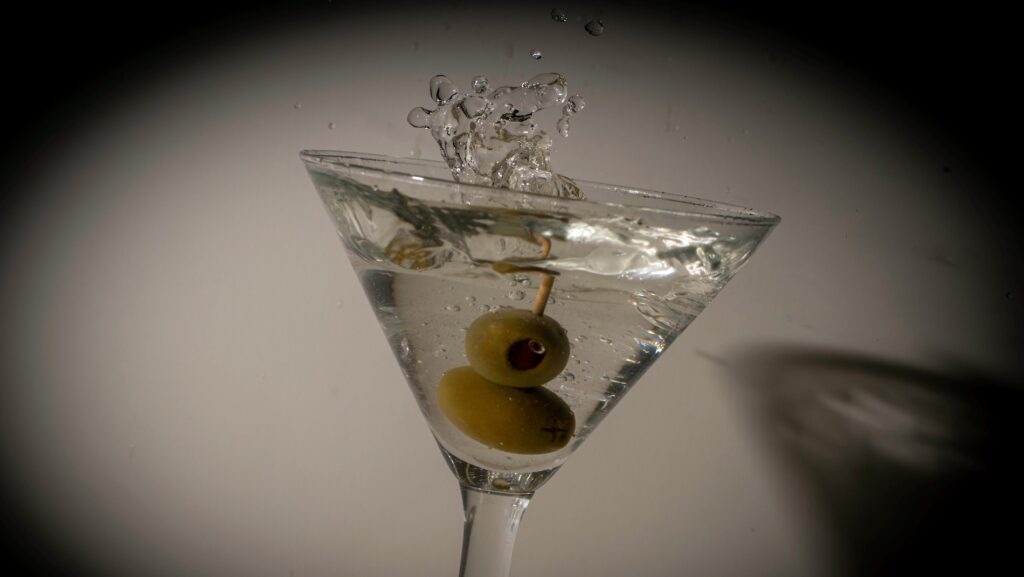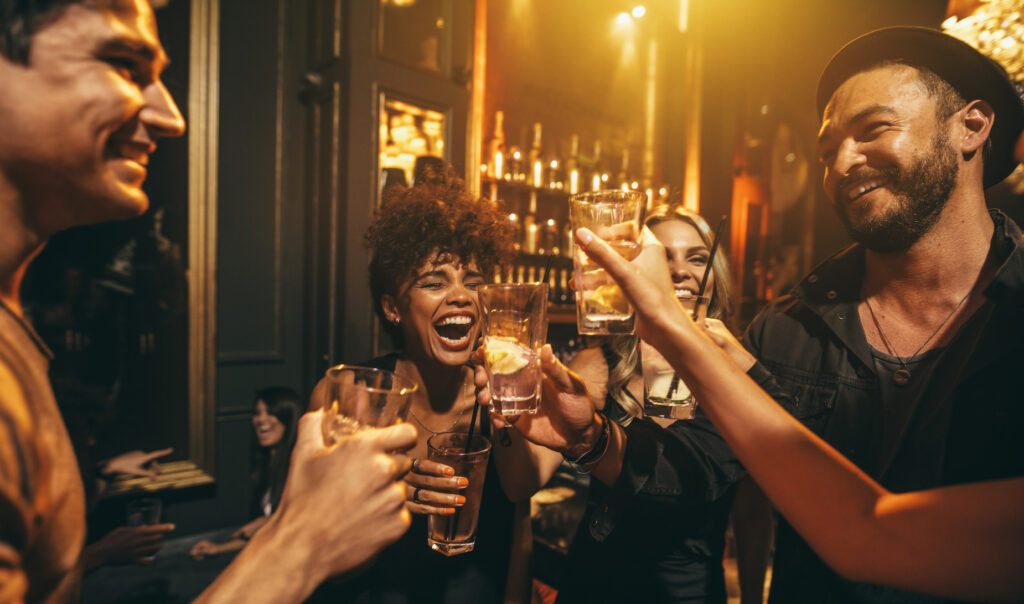
Useful English Terms and Expressions for Bartenders [Updated]
![Useful English Terms and Expressions for Bartenders [Updated] Useful English Terms and Expressions for Bartenders [Updated]](https://assets.blog.engoo.com/wp-content/uploads/sites/9/2023/05/21084735/english_for_bartenders-1024x702.jpg)
People often think of bartending as glamorous and exciting. After all, you get to interact with many kinds of interesting people in a fun, lively environment.
A bartending job overseas can be even more special since it can expose you to cultures, drinks and nightlife that may be different than in your home country.
If you’re interested in becoming a bartender — or if you just want some new vocabulary to use when you’re out drinking — we’ve made a list of some of the most common terms and expressions you’ll hear at a bar. Cheers — and drink responsibly!
Bartending Terms

*Because many of these terms can be used by either the bartender or the customer, we've indicated who is speaking before each example sentence.
Back
This is also called a "chaser." It's a small glass of soda or water served together with an alcoholic drink. Because it is weaker, people drink it after the alcohol to reduce the burning feeling in their throat.
- [bartender] He ordered a bourbon with a water back.
Barback
It's easy to confuse a barback with a bartender, and even native speakers sometimes aren't sure of the difference.
A barback is a bartender's assistant who does things like wash glasses, refill empty liquor bottles and help customers who are ready to pay. This is mostly because barbacks often don't have a certificate that allows them to serve alcohol.
- [bartender] I have to handle everything behind the bar until the barback gets here.
Tab
Instead of asking for payment for each individual drink, bars will often "open a tab" for a customer. This means they will record everything a customer orders so that they can pay for everything all at once when they are ready to go.
- [bartender] Shall I open a tab for you?
- [customer] Please put it on my tab.
Customers "close a tab" or "close out" when they are finished ordering and are ready to pay.
- [bartender] Are you ready to close out?
Rocks

"Rocks" are ice. So a drink "on the rocks" means it is served with ice.
- [customer] I'll have a Scotch on the rocks, please.
Mixer
A mixer is a non-alcoholic drink like juice or soda water that is mixed with alcohol to make cocktails.
- A Cuba Libre is a kind of cocktail made of rum with a Coke mixer.
Neat
“Neat” drinks are poured straight from the bottle and are served without ice or mixers.
- [customer] I’ll have a whiskey neat.
Dirty
A martini is “dirty” when olive juice has been added to it.
Double
A "double" is a drink with twice the normal amount of alcohol.
- [customer] I'll have a brandy. Please make it a double.
Double can also be short for “double shift,” and refers to working both the day and evening shifts in a single day.
- [bartender] I just finished a double, and I can’t wait to get home and sleep!
Dry

For most alcoholic drinks, such as cocktails, "dry" means no sugar or sweetness, or only a very small amount of it.
- [customer] This is too sweet. I asked them to make it dry.
Mocktail
"Mock-" as a prefix means "not" or "fake." For example, a mockumentary is a fake documentary. Similarly, mocktails are cocktails with no liquor.
People may choose to not drink alcohol for many reasons, but mocktails allow them to still enjoy tasty drinks and the stylish feeling that is often connected with them.
- [bartender] If you're not drinking tonight, I can make you a mocktail.
86
This term is common in the food and drink industry. It's used as a verb and has two meanings.
1. If an item on the menu has been "86'd," it means it is sold out or no longer available.
- [staff member] We 86'd that dish because we ran out of the ingredients.
2. More common for bars is the second meaning, which is "to remove" or "deny entry to." This refers to situations in which customers are asked to leave or are banned because they are rude, too drunk, refuse to pay, etc.
- [bartender] The boss 86'd him for starting a fight. Don't let him back in.
This term is said to have several different origins, from serving a weaker, "86 proof" whiskey to bar customers who've had too much to drink, to the boxes dead bodies are buried in, which are eight feet long and put six feet under the ground.
Top shelf
"Top-shelf" liquor refers to higher-quality, expensive liquor that traditionally was kept on a shelf above the bar.
Today, it is commonly used in stores and even in private homes to refer to premium alcohol.
- Tom brought some top-shelf alcohol to celebrate his friends' anniversary.
Well
"Well" drinks are often thought of as the opposite of top-shelf liquor. In other words, they are usually more common or less expensive drinks that are ordered more frequently.
- All well drinks are $3 off during happy hour.
Last call
Last call is the final chance to order drinks before the bar closes.
- [customer] Let’s order a few more drinks before last call.
Last call is the theme of a popular song about a bar closing for the evening.
Other Useful Terms
Nightcap
This is simply any alcoholic drink at the end of an evening or shortly before going to bed to help someone relax.
"Cap" (or "cap off") is sometimes used as a verb meaning "to end." So a nightcap is like an end to the evening.
- Do you want to join me at the bar for a nightcap?
On the house

"The house" is often used to refer to places like bars, restaurants or casinos. These places may offer free food or drinks if there was a mistake with your order and they want to apologize, or perhaps if you simply have a good relationship with an employee. These free items are said to be "on the house," which means the customer does not have to pay for them.
- [bartender] It looks like you've had a hard day. This beer's on the house.
Similarly, someone can say a drink is "on me," which means they will pay.
- It's your birthday, so drinks are on me tonight!
Keep the change
This is a very useful expression that isn't only for bars. Remember that tipping is common in many Western countries. Rather than leaving extra money behind for a server or bartender, many people will pay more than the total bill and tell the bartender that the extra money is theirs to keep.
- [customer] Here's $20. Keep the change.
Wrap-Up
Bartending can be a great way to improve your English in a fast-paced, real-world environment. It may be challenging, but that can be motivation for you to work harder!
The expressions we've covered in this article are only a small example of common bar terms, so there is much more for you to learn. In fact, for more useful alcohol-related vocabulary, we recommend the following article: Bottoms Up! English Expressions for Drinking
And for our readers who prefer kitchens instead of bars, please check out: Essential English Vocabulary for Cooking



